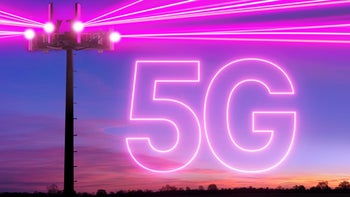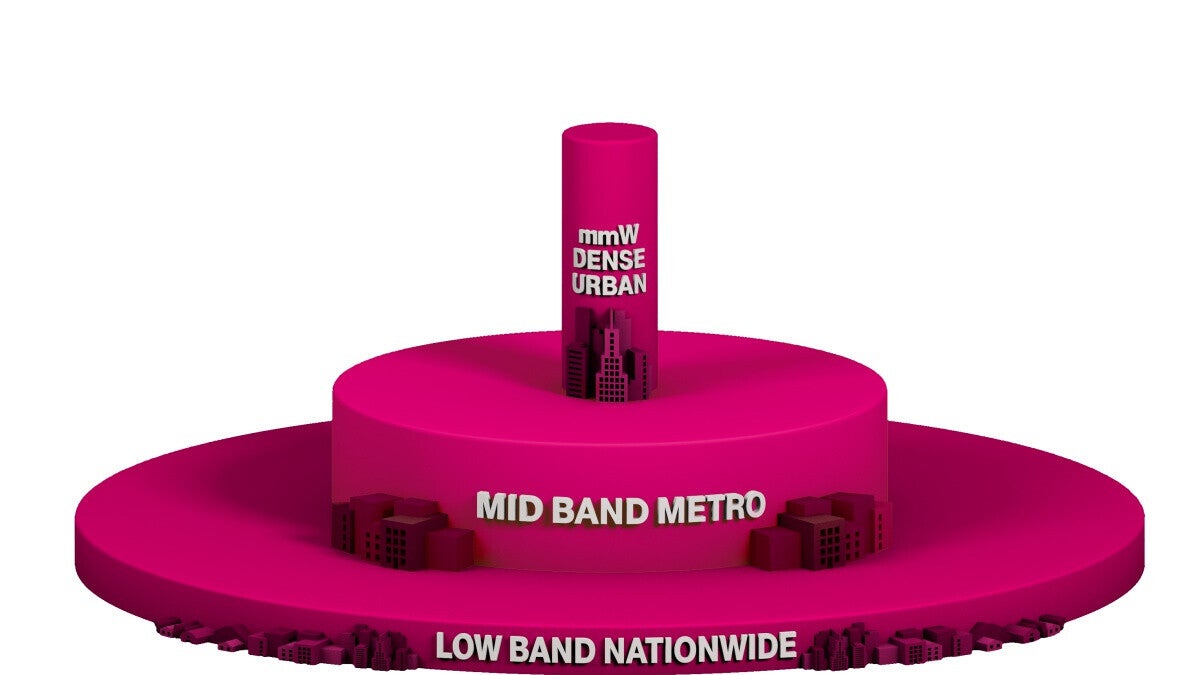T-Mobile asks for special permission to use 2.5GHz 5G spectrum held up by the FCC

Last September T-Mobile shelled out more than $304 million to purchase additional 2.5GHZ mid-band spectrum for its Ultra Capacity 5G service. The amount spent seemed like pocket change compared to the $26 billion that T-Mobile spent to acquire Sprint so that it could acquire the hoard of 2.5GHz mid-band spectrum that Sprint owned. Hey, you didn't think that T-Mobile bought Sprint for its retail operations, did you?
Thinking ahead, T-Mobile wanted Sprint's 2.5GHz mid-band spectrum to help it become the early 5G leader in the states. That's because Verizon and AT&T figured that consumers would be attracted by the zippy fast download speeds offered by high-band mmWave signals. And yes, it is true that mmWave delivers the fastest 5G service. However, it is also true that mmWave signals travel only a short distance which means that finding mmWave service for your phone is like finding a needle in a haystack on a dark and rainy night.
Mid-band spectrum is the "sweet spot" for wireless providers like T-Mobile
And while low-band signals travel great distances, they do not deliver download speeds much faster than LTE. But mid-band is the Goldilocks of 5G. It travels longer distances than mmWave, but not as far as low-band. And while it isn't as fast as mmWave, mid-band 5G signals can provide users with 5G download speeds that are more than 10 times faster than LTE.

T-Mobile's triple-layer cake approach to 5G
The problem that T-Mobile is having with the 7,156 licenses of 2.5GHz spectrum that it won during last year's FCC Auction 108 is that it is being blocked from deploying it according to Fierce Wireless. It seems that Congress recently allowed the FCC's auction authority to expire and until this authority is reinstated, the regulatory agency is not allowed to issue the licenses for the 2.5GHz spectrum that T-Mobile won and wants. T-Mobile was able to obtain a small number of the 2.5GHz licenses it won at auction before the FCC's authority expired.
Last Friday, T-Mobile filed for special temporary authority (STA) to deploy the 2.5GHz spectrum it won at auction in nearly all of the 2,724 counties covered by the spectrum. Of course, you can't simply ask permission to do something like this unless you can explain to Congress how the public will be best served by having the request granted. The nation's second-largest carrier says that allowing it to deploy the spectrum now would allow T-Mobile to provide wireless service in rural areas of the country that are underserved.
One theory suggests that the FCC is allowing T-Mobile to fight its battle with Congress over auction authority
Analyst Blair Levin of New Street Research says, "T-Mobile is not simply going to accept the Chair’s assertion about the FCC’s lack of authority to grant the license. The company obviously believes and is willing to spend some political and financial capital to demonstrate that it has a strong argument that granting the licenses is both legally allowed and in the public interest."
T-Mobile also notes that since the auction has long ended, the FCC still has the authority to give the licenses to T-Mobile. The carrier does note that while Congress is deciding what to do about the FCC's auction authority, T-Mobile is requesting the STA due to "extraordinary circumstances." In the application, the wireless provider writes, "While T-Mobile expects that the Commission's auction authority will be restored, the timing for when that will occur is unclear."
There is a theory that would show how devious the FCC really is if true. This theory suggests that the FCC is refusing to allow T-Mobile to deploy the new 2.5GHz spectrum licenses in order to have the carrier fight with Congress in an attempt to get the lawmakers to return to the FCC its auction authority. In order words, if true, the FCC is using T-Mobile to fight its battle with Congress for it.










Things that are NOT allowed: